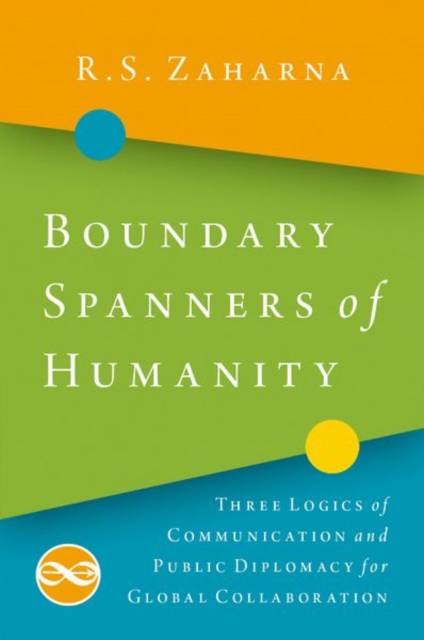
- Retrait gratuit dans votre magasin Club
- 7.000.000 titres dans notre catalogue
- Payer en toute sécurité
- Toujours un magasin près de chez vous
- Retrait gratuit dans votre magasin Club
- 7.000.000 titres dans notre catalogue
- Payer en toute sécurité
- Toujours un magasin près de chez vous
Boundary Spanners of Humanity
Three Logics of Communications and Public Diplomacy for Global Collaboration
R S Zaharna
Livre broché | Anglais
56,45 €
+ 112 points
Description
Written by a leading scholar of public diplomacy, Boundary Spanners of Humanity introduces a pan-human vision of communication that can revolutionize how we collaborate to solve global problems. Never before has humanity enjoyed better technological capabilities for interconnection than today. Ironically, rather than benefiting from the global pool of human resources and intellectual wealth to solve shared problems, nations are experiencing public discord and global divisions. Boundary Spanners of Humanity tackles the challenge of how to enhance global collaboration by introducing three pan-human logics of human communication and public diplomacy that can transform how we view diversity in an interconnected world. R.S. Zaharna begins by asking why the very tools needed for global collaboration-communication and public diplomacy-are undermining our efforts to work together. Her research reveals how contemporary communication is based on a nineteenth-century mindset of separateness that divided people into mutually exclusive cultural and national categories. That mindset reinforces human divisions and erodes global collaboration. In a radical break from conventional models, Zaharna introduces a vision of humanity-centered public diplomacy featuring three complementary logics of communication. Zaharna's innovative approach stems from decade-long, interdisciplinary research that spans from ancient cosmologies to emerging neurobiology. She draws on a rich array of global examples from ancient and indigenous precolonial diplomacies to spontaneous online communication during the Covid-19 pandemic to provide insights into overlooked aspects of emotion, empathy, spirituality, and synchrony in how nations and people communicate in the global arena. Ambitiously conceived, this book will bring a new, global understanding of how to conduct public diplomacy for the world's boundary spanners-those who would find commonality among our many divisions-and collaborate on humanity's shared global problems.
Spécifications
Parties prenantes
- Auteur(s) :
- Editeur:
Contenu
- Nombre de pages :
- 272
- Langue:
- Anglais
Caractéristiques
- EAN:
- 9780190930288
- Date de parution :
- 18-01-22
- Format:
- Livre broché
- Format numérique:
- Trade paperback (VS)
- Dimensions :
- 156 mm x 235 mm
- Poids :
- 408 g







